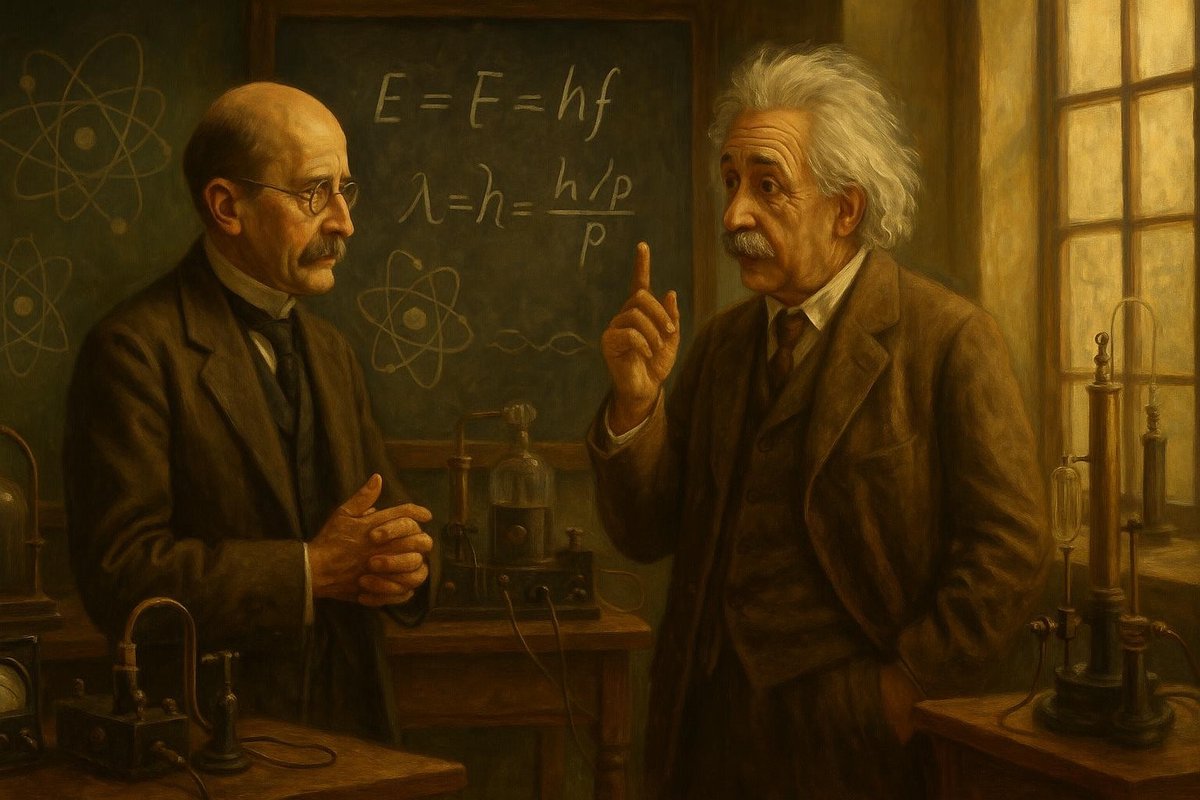
The early 20th century marked an era of unprecedented scientific discovery. Among these breakthroughs, the emergence of Quantum Theory stood as a beacon of change, heralding a new understanding of the universe’s fundamental workings. But what conditions led to this revolutionary development, and how was it perceived by the scientific community? As we delve into the origins and reception of Quantum Theory, we’ll uncover the rich tapestry of historical, cultural, and intellectual influences that shaped one of the most profound scientific paradigms.
The Historical Context: Seeds of a New Scientific Era
The birth of Quantum Theory did not occur in isolation. It was a culmination of various scientific advancements and cultural shifts at the turn of the 20th century.
- The Industrial Revolution had spurred technological progress, leading to more sophisticated experimental methods.
- Classical physics, epitomized by Newtonian mechanics, was facing challenges as new phenomena emerged that it couldn’t explain.
- The discovery of X-rays and radioactivity suggested that there was much more to understand about atomic structures.
Interestingly, it was Max Planck’s work on blackbody radiation that first hinted at the quantum world. Planck introduced the idea that energy is quantized, a radical departure from the continuous energy models of classical physics. This notion laid the groundwork for future explorations into the quantum realm.
The Groundbreaking Contributions: Key Figures and Discoveries
Max Planck’s introduction of quantized energy was just the beginning. Several other pivotal figures soon expanded upon his ideas, transforming Quantum Theory into a comprehensive framework.
- Albert Einstein’s explanation of the photoelectric effect further confirmed that light has both wave and particle properties.
- Niels Bohr developed the Bohr model of the atom, integrating Quantum Theory to explain electron orbits.
- Erwin Schrödinger and Werner Heisenberg formulated wave mechanics and matrix mechanics, respectively.
Of course, these advancements did not happen overnight. Each breakthrough was built upon the shoulders of the last, forming an interconnected web of knowledge that challenged and eventually reshaped existing scientific beliefs.
Reception by the Scientific Community: From Skepticism to Acceptance
The revolutionary nature of Quantum Theory naturally sparked diverse reactions within the scientific community. Initially, many scientists met these radical ideas with skepticism.
- Some physicists clung to the deterministic views of classical physics, reluctant to embrace probability and uncertainty.
- Prominent figures like Albert Einstein famously resisted some interpretations of Quantum Mechanics, coining the phrase, “God does not play dice.”
- As more experiments validated quantum predictions, the theory gradually gained acceptance.
As time went on, no wonder many scientists began to appreciate the elegant complexity of Quantum Theory. It offered explanations for phenomena that classical mechanics could not, thus paving the way for groundbreaking technologies such as semiconductors and lasers.
The Broader Impact: Transforming Science and Society
Quantum Theory’s influence extends far beyond the confines of academia, impacting various aspects of modern life.
- The development of quantum mechanics led to technological innovations that underpin the digital age, including computers and telecommunications.
- Quantum Theory has inspired new philosophical debates about the nature of reality and the universe.
- It continues to fuel research in cutting-edge fields like quantum computing and cryptography.
Interestingly, the societal implications of Quantum Theory have been profound. It has not only changed how we understand the world but also how we interact with it, driving progress and innovation across numerous domains.
In conclusion, the discovery and acceptance of Quantum Theory marked a pivotal moment in the history of science. It challenged our understanding of the universe, reshaped scientific inquiry, and laid the foundation for technological advancements that touch every aspect of contemporary life. As we continue to explore the quantum realm, we remain indebted to the pioneers who dared to question the status quo.
Fuel Someone Else’s Curiosity
Enjoyed this journey through the origins and impact of Quantum Theory? Share this article with friends and fellow science enthusiasts! Let’s spread the word about the fascinating world of quantum mechanics and its enduring influence. Together, we can inspire curiosity and foster a deeper appreciation for the wonders of science.

Leave a Reply